Endodontic (Root Canals)
Root canal treatment is a procedure to repair and save a decayed tooth by removing pulp, cleaning inside the tooth and sealing the tooth. Most people think that the procedure is painful but it is actually comfortable and painless since we will numb the area before the procedure. Many people say that having a root canal treatment today is as comfortable and painless as having a cavity filled.
Steps of Root Canal Treatment
Step 1: Deep Infection
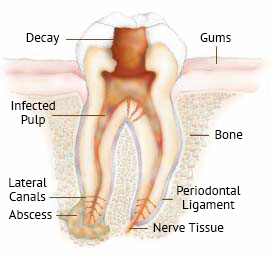
Root Canal Treatment is needed if the decay of your tooth is advanced all the way to the tooth’s root.
Step 2: A Route to the Root
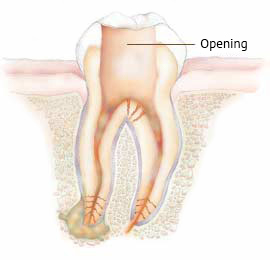
The tooth is anesthetized and an opening is made through the crown of the tooth to the pulp chamber.
Step 3: Removing the Infected/Inflamed Tissue
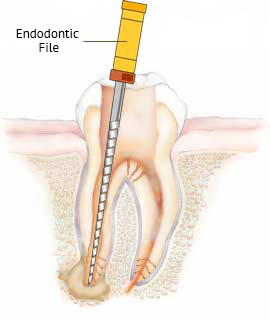
Special tool is used to clean the infection and unhealthy pulp out of the canals. Irrigation system is used to clean the main canal and lateral canals.
Step 4: Filling the Canals
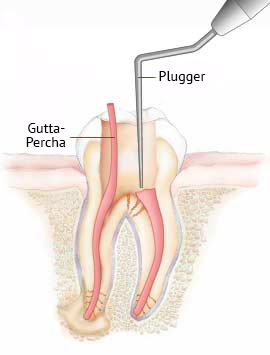
The canals are filled with a permanent material, often gutta-percha. This helps to keep the canals free of infection or contamination.
Step 5: Rebuilding the Tooth
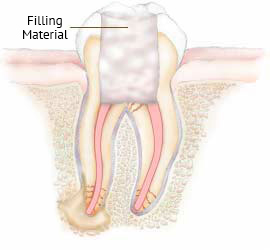
When the root canal treatment is completed, a temporary filling material will be filled on top of the gutta-percha to seal the opening until the tooth is ready for a crown. A crown will be made to place on top and it will look as natural as your natural tooth/teeth depending on material.
Step 6: Extra Support
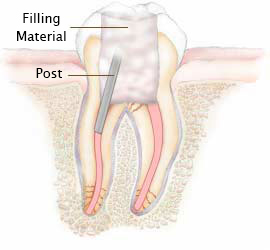
In some cases, a post is installed to give the crown extra support.
Step 7: The Crowning Touch
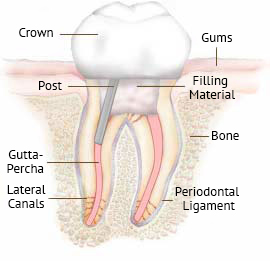
Once when the crown is made, the dentist will cement it into place.
Signs You May Need a Root Canals Treatment
- Severe Toothache When Chewing
- Prolonged Sensitivity to heat and cold temperatures
- Discoloration of the tooth
- Swelling and Tenderness in the nearby gums
- A persistent pimple on the gums (abscess). Ignoring an abscess can lead to the infection spreading
- Trauma from a car accident, sports injury, or other blows can necessitate a root canal
- A broken filling also carries the risk of the pulp getting infected
Will the tooth need any special care or additional treatment?
- Avoid chewing or biting on the treated tooth until you have had it restored by dentist because the tooth could fracture
- Follow your normal oral hygiene including brushing and flossing
- Regular checkups and cleanings


